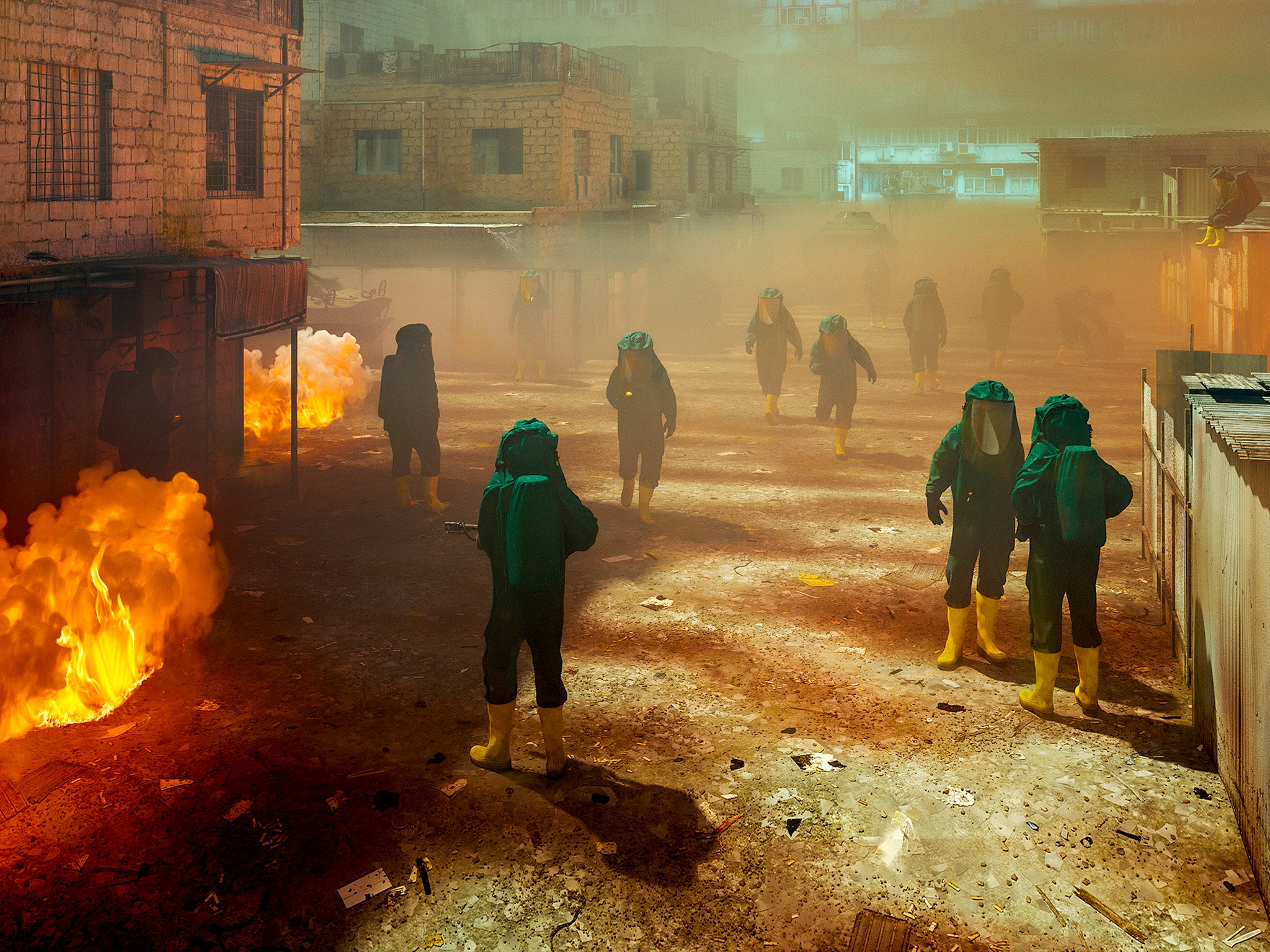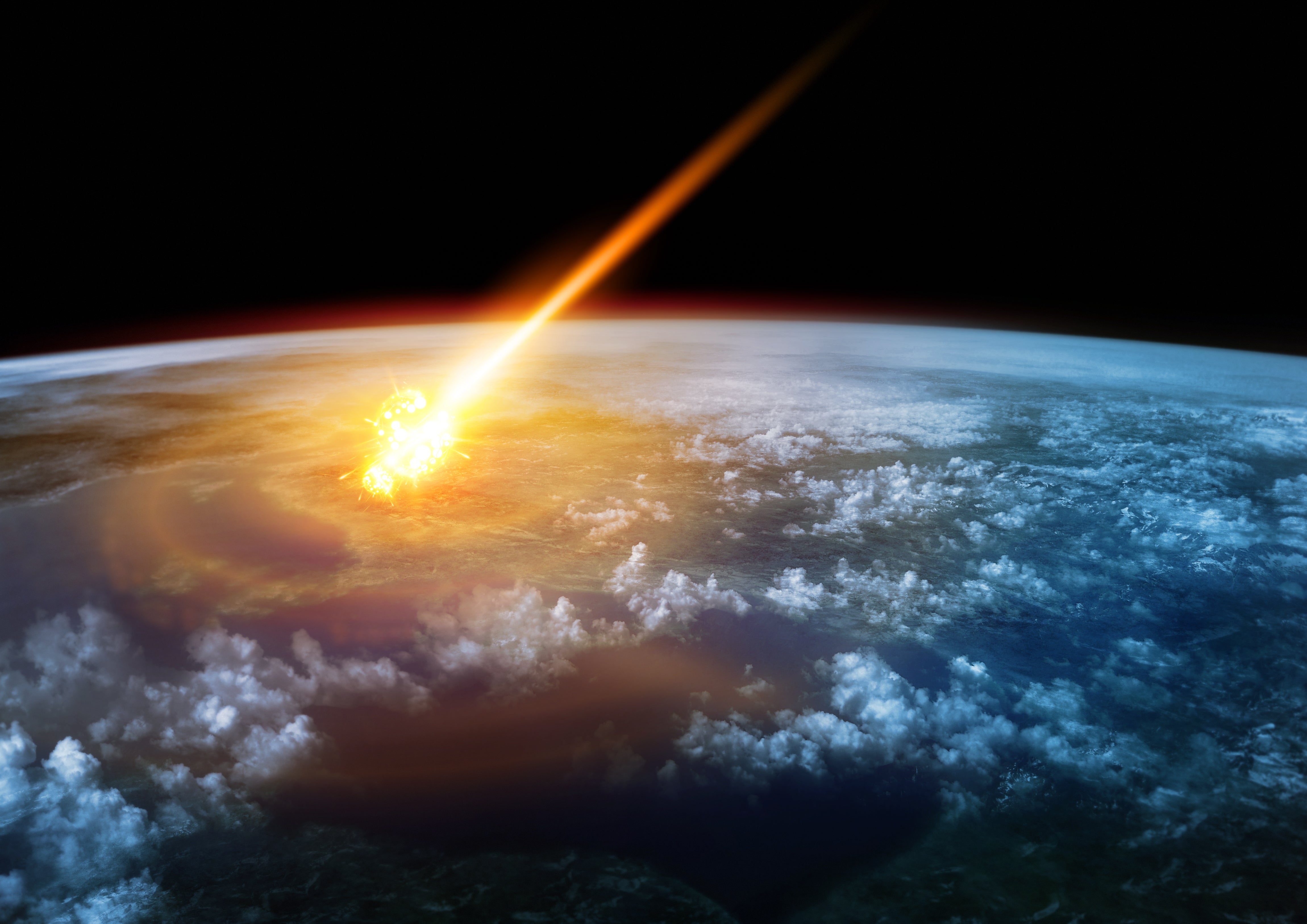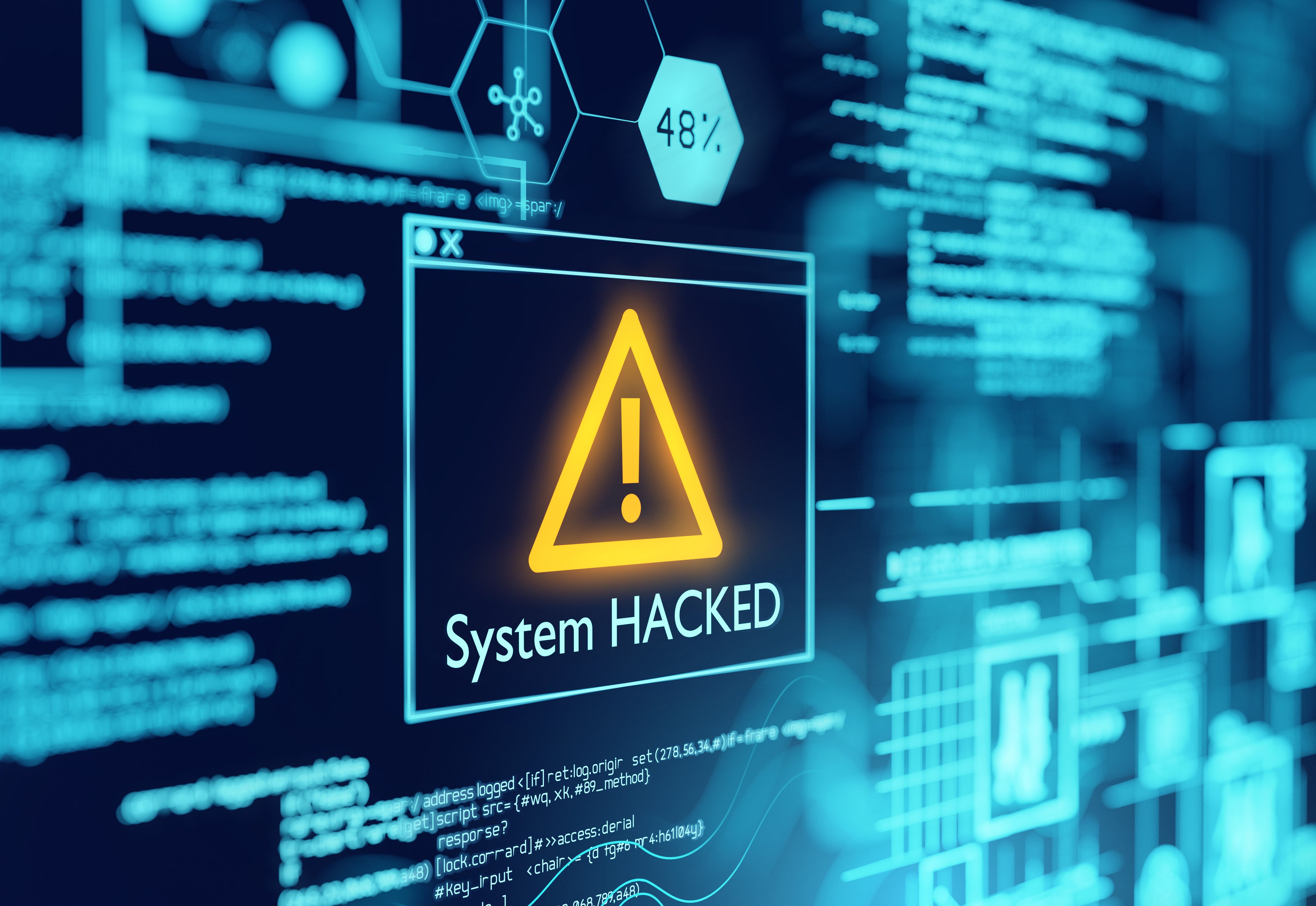Is this the beginning of the end ... of the world
Less of a bang and more of a whimper... Andy Martin reckons the end will be marked by a long, slow steady decline, punctuated by ever more overwhelming catastrophes – a bit like now really!


Not that I have anything against Slough as such, but I get why John Betjeman would have written: “Come friendly bombs and fall on Slough.” Slough, it should be noted, is really (pre-war) Slough in this poem, but it also represents everything that Betjeman does not like (“It’s not fit for humans now”). My own preferred solution to all architectural and other disasters is to have an asteroid wipe out the entire earth. Either that or a Death Star.
It would solve the litter problem at a stroke too – although I guess there would be an awful lot of terrestrial garbage flying through space. Our final all too appropriate legacy would be KFC cartons and Coke bottles scattered all over the interstellar void. We could, perhaps, take off in a star ship bound for a new Eden, but let’s face it we would be bound to screw that up too. Better to let the beetles or the Triffids take over here surely. Maybe the dinosaurs could make a comeback in a new Jurassic world.
The sad truth is that – on a par with being spirited away by friendly aliens in their flying saucer – the total instant annihilation scenario is sadly improbable. Those friendly asteroids always seem to miss the bullseye by several million miles. Far more likely than Apocalypse Now is – as someone once described the male menopause to me – “a long slow steady decline”, punctuated by ever more overwhelming catastrophes. That really only leaves two distinctive mechanisms of destruction – cock-up or conspiracy, or possibly a cocktail of the two.

None of which stops us from contemplating extinction. And even betting on it. Would the guy who used to troop around Oxford Street brandishing the placard, THE END IS NIGH, have been willing to put his house on that prophecy (assuming he had a house)? The main problem with betting on the end of the world is that you’re not going to be around to collect your winnings. Having said that, I can imagine that there would be a certain grim satisfaction, as the lights finally go out, in muttering, “I told you so” – and perhaps hearing all the unrepentant optimists recant and admit, “Yep, looks like you were right all along.”
The odds on an ‘Ape Uprising’ at 4,600-1, were only slightly less than the 5,000-1 offered on Leicester City winning the Premiership title
William Hill says it is not currently offering odds on the end of the world. Perhaps because it thinks it is imminent. But Paddy Power certainly used to offer odds on the apocalypse. Perhaps in these dark days it should not surprise us that it’s not that much of a longshot. The odds on an “Ape Uprising”, at 4,600-1, were only slightly less than the 5000-1 offered on Leicester City winning the Premiership title (as they did in 2016). The idea that zombies would take over was a mere 1000-1. Slightly more of a longshot than the inevitable alien invasion. I guess Hollywood has a lot to answer for.
But the grim reality of the slow (or not so slow) steady decline is becoming all too manifest. Just as Slough represented contemporary society to Betjeman, so I tend to think of the fate of islands as exemplary. As a result of being born in the East End of London, I used to fantasise about the South Pacific as being a decent slice of paradise. Now I gather that Vanuatu is slowly disappearing under a tide of non-biodegradable nappies (and has now passed a law prohibiting them). What a way to go!
Hawaii (more north than south Pacific, to be exact) is also doomed. I always imagined it would perish beneath a massive tsunami, and that a few extremely gifted surfers would manage to escape. Either that or the imminent collapse of the Thwaites Glacier in Antarctica would trigger if not a giant wave at least a rise in sea levels enough to wipe out at least Honolulu and other coastal cities. At least the astronomical observatories atop Mt Mauna Kea would survive. But no matter what you expect it’s always something else. It turns out that the American Navy is in fact torpedoing its own people. Metaphorically speaking. What they are actually doing may be worse.

Contrary to planning regulations and completely in defiance of any shred of common sense or decency, they chose to locate their underground fuel storage tanks, containing as much as one hundred million gallons of some extremely toxic and highly inflammable liquid, right over the top of the aquifer that serves approximately half a million people on the south side of the island of Oahu, from Pearl Harbour to Diamond Head and beyond.
Needless to say there have been leaks and fossil fuels are now coming out of Hawaiian taps. The nearby army base has already stopped using tap “water”. A major shopping centre has shut. Navy families are being offered hotel rooms somewhere else. There is a threat of mass evacuation and residents at the northern end of the island, unaffected by leakages, are already panicking about the deluge of fugitives from the south. Hawaii is a little like the canary down the coal mine – what happens there will eventually hit the rest of us, one way or another.
Consider some of the myriad effects of climate change: deforestation, desertification, fire, drought, flooding. Quite enough, when combined, to put the continuity of civilisation in jeopardy
The only remaining question, therefore, is: cock-up or conspiracy? I note that there is a grand total of 130 assorted “risks” (malicious or otherwise) listed in the 2019 National Security Risk Assessment. I am reasonably relaxed about the prospect of unleashing a modern day Frankenstein’s monster in the shape of a superintelligent AI machine intent on terminating the stupid humans that get in its way. I like to imagine that the rogue computer of the future with an IQ of a million will be too preoccupied with playing chess or Go against itself or exploring way more exciting parallel universes to be bothered with the fate of us numbskulls. Do we worry about what ants are getting up to?
The jury is still out on Covid-19 – and perhaps always will be. Bat or Wuhan lab? Could a bat pathogen have the distinctive “furin cleavage site”? If it was the lab it seems more likely to have been an accidental release rather than a deliberate act in the manner of the Salisbury Novichok poisonings. But there is always the possibility of bad actors at work.
Consider some of the myriad effects of climate change: deforestation, desertification, fire, drought, flooding. Quite enough, when combined, to put the continuity of civilisation in jeopardy. Some will survive, many won’t, and those that do probably won’t be too happy about it either. But in amidst all the involuntary self-destruction and anti-Gaia anthropocentric activities, we also have to take into account the few dedicated arsonists and pyromaniacs (which paradoxically includes a very small number of firefighters) who set about deliberately lighting a fuse.

“That’s what we really ought to worry about,” says Martin Rees. “The bad actors: they’re hard to forestall.” His full title is Lord Rees of Ludlow and he is the Astronomer Royal. And he is one of the authors of the recent House of Lords report on “Preparing for Extreme Risks: Building a Resilient Society.” And he has an enlightening book out in paperback, On the Future: Prospects For Humanity. So he has really thought about the way the world is going to end. He won’t be putting a bet on the zombie apocalypse any time soon, but he has co-founded the Centre for the Study of Existential Risk.
I popped round to his house in Cambridge to have a chat with the silver-maned cosmologist about the end times. It’s funny how the semantics of “existential” has shifted in the last half-century. It used to refer to something like a personal sense of angst in the face of pervasive absurdity and death; now it has become synonymous with the fate of the planet as a whole. We’ve gone from nervous breakdown to social collapse.
Existential used to refer to something like a personal sense of angst in the face of pervasive absurdity and death; now it has become synonymous with the fate of the planet as a whole
Rees has calculated the probability of an asteroid hitting or us getting wiped out by a gamma ray blast from a neighbouring star. Once every 10 million years or so the Earth is liable to have a close encounter with a wrecking ball. But Rees is confident we can out-general it. Contrary to his old colleague, Stephen Hawking, he is also not a fan of a select crew of extremely wealthy airline and online supermarket magnates blasting off to another planet, mainly because he finds the idea a distraction from the real business of having a shot at fixing the one we are already on.
My own existential philosophy, which is a loose translation from the French, is “everything always goes wrong”. Rees agrees with this, but reckons the more serious problem is wrong-uns making everything go wrong. The more interconnected we are, the more dependent we are on tech, the more likely society is to fall apart when/if the internet goes on the blink or gets hacked to hell. As the novelist Robert Harris neatly put it: “Sophisticated societies do collapse. You cannot think of one that did not face some terrible crisis, partly because they became so sophisticated.”

Rees fears the “disappointed loner” beavering away in their back room or in the lab, whether for the purpose of cyber or bio-terrorism, driven by what HG Wells called the “wrecking madness in the mind of man”. “It’s becoming easier to engineer viruses. And thereby cause massive disruption. It could be more transmissible than Covid. And more virulent. It could make the current pandemic look like a trial run.”
Some years ago, Rees placed a “long bet” with the more optimistically minded psychologist Stephen Pinker on whether there would be an incident of bio-terrorism that would kill at least a million people by 2020. Rees bet for, Pinker against. In the light of the raging pandemic, they had to suspend the bet because we don’t yet know if this is exactly what it is, or accidental, or spontaneous. But if this was with William Hill rather than in the pages of The New Statesman, I reckon I would be demanding a payout. Bio-error or bio-terror: it’s a fine line. “Only 0.3 per cent of the population in the US and UK have died from Covid-19,” points out Rees. “At approaching 1 per cent the hospitals would be inundated.”
It’s becoming easier to engineer viruses. And thereby cause massive disruption. It could be more transmissible than Covid. And more virulent. It could make the current pandemic look like a trial run
Given the way we are teetering on the brink anyway, it only needs a little push to finish us off. It’s like the bad guys would only be taking the line of least resistance, collaborating with the zeitgeist.
In a similar vein, Rees sees a fully intentional thermonuclear-style World War 3 as relatively far-fetched (although not impossible), but rates some kind of half-cocked “hack” into all that assembled military hardware as “likely to become more common”. The different ways of destroying society beyond climate change are becoming more numerous. “Imagine if the internet had gone down during the pandemic!”

The creaky energy infrastructure of the United States is becoming a regular haunt of cybernauts (possibly based in China or Russia, but also not implausibly in the US itself) who steal information and sow panic and disruption, latterly shutting down a major pipeline. It’s not hard to imagine the grid being taken offline and the lights going out. It’s not just the internet that will go down, much to the consternation of Jeff Bezos, but whole transport systems, finance, and hospitals too. Could the other side end up pushing your nuclear buttons? I would rate that a lot more likely than a zombie uprising.
Our inegalitarian future will be one in which vast swathes of the population are cut down and whole civilisations go up in smoke while a small handful of ultra-wealthy tech moguls are preserved in their insular fortresses
Rees, like a latterday Orwell, looks forward to a dystopian future in which we are more vulnerable than ever and liberty, security and privacy are all hanging by a thread. Is there anything we can do about it? Obviously we need to put our vampiric guzzling of fossil fuels into reverse and pump it all back where it came from. And keep working towards new energy sources like nuclear fusion. But, in the meantime, Rees has a modest proposal: “What we can do is try to decrease the number of embittered individuals.”
He – and his fellow peers – are talking about a new “Marshall Plan” (like the post-Second World War American initiative) that could see funds and international collaboration underpinning the development of whole countries and continents in the post-plague period – in a spirit of self-preservation. Given that we have recently cut overseas aid, it is safe to say that this idea hasn’t yet caught fire in Whitehall.
Even when Hawaii is going down the drain, it is good to know that Mark Zuckerberg is safely squirreled away in his meta-universe on the island of Kauai. Such is the tragic fate of the world. This could be our increasingly inegalitarian future, one in which vast swathes of the population are cut down and whole civilisations go up in smoke while a small handful of ultra-wealthy tech moguls are preserved in their insular fortresses. I imagine that Meta-man has made sure to have a secure source of energy, perhaps his own meta-grid. In the event of an emergency, Facebook and Instagram will live on, forever recyling photographs of how incredibly perfect our lives are (or were).
As for the rest of us, I think it would be wise to practise living without a phone or a computer. We may be locked in an irreversible, self-inflicted death spiral. Humanity is extinguishing itself. An esteemed colleague reckons we have at best two hundred years before doomsday. We are such a cruel, stupid, heartless, murderous bunch, do we even deserve more of an innings?
I have an old friend who has settled down in a shack on the side of a mountain in Montana, together with an ample collection of guns – and a bow and arrow for the day he runs out of ammo. He already refuses to touch Starbucks with a bargepole. Call him Mad Max if you will. But when the apocalypse finally comes, he is going to be laughing.
Andy Martin is the author of Surf, Sweat and Tears: the Epic Life and Mysterious Death of Edward George William Omar Deerhurst (OR Books)




Join our commenting forum
Join thought-provoking conversations, follow other Independent readers and see their replies
Comments